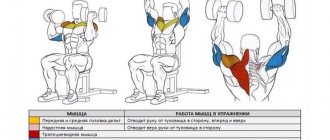Our speech is rich and varied. Often we freeze with a pen in our hand trying to remember the correct spelling of a lexeme, for example, how to spell the word “training” or “training”. In order to prevent mistakes, we often start looking for test words. But what lexical unit can be tested in this case? Coach or train? To better understand everything, we should find out the method of formation of this noun and determine its morphemic composition.
Which is correct: “training” or “training”?
Among the most common variants of the analyzed word are:
- “Training” when the vowel “i” is written in the second syllable.
- “Training”, when the vowel letter “e” is indicated in the second syllable.
The only and correct option is the first one. It is a mistake to believe that the root of the word is the construction “coach”. The noun in question is verbal and comes from the infinitive “to train.” If the suffix “irova” is used in a verb, then in a noun it is transformed into “ir”.
It is worth remembering that there is no test word.
The noun "training" was borrowed from English and German words, so the correct spelling will just need to be remembered
Declension of the noun "training"
Noun “training” (non-standard)
| Case | Singular | Plural |
| Nominative Who? What? | training | workout |
| Genitive Who? What? | workout | wok training |
| Dative To? Why? | training about vka | Vkam training |
| Accusative (individual) Of whom? What? | taste training | workout |
| Creative Who? How? | training about how training about how | wkami training |
| Prepositional About whom? About what? | training about vka | training about skills |
Making the Word Map better together
Hello!
My name is Lampobot, I am a computer program that helps you make Word Maps. I can count perfectly, but I still don’t understand very well how your world works. Help me figure it out! Thank you!
I will definitely learn to distinguish widely used words from highly specialized ones.
How clear is the meaning of the word ionizer
(noun):
Associations to the word “training”
Synonyms for "training"
Sentences containing "training"
- Pain during training
can occur in the muscles, in the right and left side, in the heart area, in the head.
Quotes from Russian classics with the word “training”
- Soon he and Alexey began to organize real naval battles and proper races in the river. From this start, the dog trustingly and happily entered into the training
. Captivated by this sweet activity and the willing understanding of the student, Aleksandrov stayed in Kraskov for two and a half weeks instead of a week.
Associations to the word "training"
What is “training” like?
The meaning of the word "training"
TRAINING, -and, genus. pl.
—vok,
dat.
—vkam,
w.
Training session, exercise in smb.
skill, ability. Swimming training.
(Small Academic Dictionary, MAS)
Submit Comment
Additionally
The meaning of the word "training"
TRAINING, -and, genus. pl.
—vok,
dat.
—vkam,
w.
Training session, exercise in smb.
skill, ability. Swimming training.
Sentences containing "training"
Pain during exercise
can occur in the muscles, in the right and left side, in the heart area, in the head.
Many sources about natural bodybuilding say that in the first year of training
you can build ten kilograms of muscle, in the second - five, in the third - two.
As a result of six intense years of hard training
were, one might say, in vain for me.
Source
Morphemic analysis of the word “training”
The noun in question is inanimate. It refers to the feminine gender in the singular of the first declension.
The root of the word “training” is the construction “tren”. The noun has three suffixes: “ir”, “ov”, “k”. The vowel letter “a” is the ending of the word.
training
Example sentences
To reinforce the correct spelling of a noun, let’s look at example sentences:
Similar article “Both” or “both”: how to write correctly?
In each case, the noun in question is written with a vowel "i" in the second syllable.
Formation of the word "training"
In the Russian language, as in a living organism, many sections are connected with each other: phonetics and spelling (prefixes on z/s), spelling and morphology (spelling of unstressed personal endings of verbs).
To decide on the spelling of the word we are interested in, we should turn to word formation. The noun “training,” denoting both the process and its result, is verbal. It is formed from the single-root verb “to train”, the morphemic composition of which is as follows:
train - root/suffix/suffix/ending.
The cognate noun was formed using the suffix -k- according to a very productive model:
train → training.
Let's see how similar verbal nouns are formed:
- whiten → whitewash;
- colorize → coloring;
- weed → weeding;
- stop → stopping.
Which is correct: “to train” or “to train”?
Despite the fact that both options are often used in writing - “to train” and “to train”, it is worth remembering that the first option is erroneous. The verb in question is not formed from the word “trainer,” in which “er” is a suffix and not part of the root.
The verb "to train" comes from the English word "to train" and the German word "trainieren". There are no test nouns or verbs for it, so you just need to memorize the correct spelling.
Example sentences
You can consolidate and remember the correct spelling of the verb in question using specific examples:
In each presented variant, the analyzed verb is written through the vowel letter “and” in the second syllable.
Etymology and spelling
Etymology is the science of the origin of words, or its description for a given specific word. In our case, it is foreign, taken from English. According to the general principles of linguistics, most of the original grammatical features and forms (morphemes) are assigned to borrowed words in the recipient language. This also applies to word formation, if its patterns do not contradict the local ones.
Despite all their differences, the languages English and Russian are Indo-European, i.e. their ancient grammatical basis is the same. Therefore, in our case, it turns out to be possible to accurately transfer the methods of formation of the morphemes “training” from the autochthon (original language) to the recipient.
In English we have the following sequence: “to train” (to train) – “trainer” (coach) – “training” (training). It is a two-syllable word: the diphthong “-ai-” is pronounced as one sound.
In the original, the second syllable contains the vowel “i” . It is read, according to the International Phonetic Alphabet IPA, in our case with aspiration: [ɪ] (ship). This is a very difficult sound for the Slavs, more difficult than the famous “th”. The voiceless English [ɪ:] (shield, shift) is more similar to the Russian “and”. But neither one nor the other is in any way similar to the drawn-out [a:] (man, bad), which sounds like a cross between our “e” and “e”.
In all word forms “training” the “and” in the second syllable remains as it is in the original. To check, let’s take a grammatically similar original word, say, “to mount” (to mount, assemble structures). Add “-ing” and you get “mounting” (assembly, mounting, mounting) - everything is correct.
Educational expressions
The root is borrowed from the pronunciation of the original source, phonetically.
Suffixes and endings arose according to the general principles of Russification of words:
stack - stack - stacking;
furniture - furnish - furnishing.
If you had once gone to study in the UK, no one would have been surprised by the “treniroffka” (“trenirovka”) design.
It’s good that they didn’t think of “train”, although there are bad examples (“Google”). But they offered a crooked substitute “training” (French motifs are felt).
“Coach” comes from a root and a suffix indicating a profession. According to the original writing. According to the canons of the languages of the West Germanic group.
The rule for writing a verb with the particle “not”
Sometimes confusion arises when writing from “not” different parts of speech, when a noun or adjective is written together, but verbs and participles are written separately:
- Ignorance of the law is not an excuse. Dunno on the Moon. BUT : I don’t know what to say. Not knowing where to look.
- A minor offense can ruin your reputation. BUT : Doesn't mean anything.
- The unforgotten feat of our grandfathers remains in our memory. BUT : Don't forget the old days. Without forgetting the past.
Therefore, first of all, let's determine the part of speech . In our case, it is a verb (means an action and answers the questions: “what to do?”, “What to do?”). Now let’s turn to the rules governing the writing of verbs with the particle “not”:
- The particle “not” with verbs and verb forms is written separately : do not read, do not know, do not understand, do not see.
- Verbs are not used without “not” : to hate, to be indignant, to dislike, to be unwell, to be unwell, not to see (light), not to drive (from the word seine, but not to drive in the meaning of leading), to be mute, to be constrained, to be sick, to be undead, numb and their word forms. In these words, the verb without “not” loses its meaning.
- Verbs with the prefix “under” are written together in the meaning of partial, incomplete action: underfinish, underweight, underestimate. Be careful with verbs starting with “do”; in such cases, both combined and separate spellings with “not” are possible. For example: Why not drink the cup to the bottom? “They didn’t eat enough, didn’t drink enough, and gave everything to the children.”
Thus, “ not to miss ” is the only correct option in Russian; other ways of writing this phrase are incorrect.
Usage examples and quotations for "don't skip"
Not content with composing orders and private letters for Paskevich (of which I have the most irrefutable evidence), he became too close to Vanka-Cain {2}, i.e. Karganov, who composed the most vile...
From “Notes not passed by censorship in Russia”
Your quarantine is very wisely designed so that the plague does not
pass
: because it will certainly be buried with those who suffer here, because death from cold, death from smoke, death from fumes (and the commissar himself, like...
“Ananur quarantine” - Alexander Griboyedov
This, however, did not prevent him from
missing
a single evening performance, knowing closely all the outstanding riders, acrobats and jugglers, and flaunting in conversations words snatched from the vocabulary of the circus arena...
“At the Circus” - Kuprin Alexander
Meaning of the word
MISS, -let you go, -let you go; prib. suffering past missed, -puppy, -a, -o; sov., trans. (nesov. skip). 1. Step aside to give way to someone or something. The Empress was sitting at her toilet. Several courtiers surrounded her and respectfully let Marya Ivanovna through. Pushkin, The Captain's Daughter. To let them [the general and the young lady] through, Urmanov and I separated so that they passed in the middle. Korolenko, From both sides. || Allow someone enter or enter, pass or pass somewhere. We arrived at the city gates; the guards let us through; we left Orenburg. Pushkin, The Captain's Daughter. The switchman started to catch up with the train in order to let it pass at the next switch onto another siding. Serafimovich, Switchman. || To give an opportunity, to allow one to enter somewhere, to become part of someone or something. All efforts of the police and the Ministry of Internal Affairs are now aimed at not letting the Social Democratic Party into the Fourth Duma. Lenin, Electoral platform of the RSDLP. For four years in a row he took the exam for the cadet school, but could not overcome the abyss of wisdom. Finally - - they missed it. Kuprin, From the street. || Razg. Permission to be published, staged, etc. As for my opera, I am now almost sure that it will be performed in the next season. Already 514 two censorships [theatrical and dramatic] passed it through. Tchaikovsky, Letter to I. P. Tchaikovsky, December 9. 1872. || Sport. Letting (the ball) be scored without being able to stop it. Pass the ball into the goal. 2. Finding yourself open, parted, etc., give passage, passage to someone or something. The orchestra began to play at an increased tempo. The curtain at the entrance to the stable parted and let in about twenty people dressed in red liveries trimmed with galloon. Grigorovich, Gutta-percha boy. The door of the tavern opened and let in a short, lean man. Sartakov, Sayan Ranges. || Let something pass through, seep through you. The filter allowed the sediment to pass through. 3. Serve in some. quantity. During its existence, my hospital has already admitted many wounded people. Vishnevsky, Wartime Diaries. 4. (what and what) Simple. Drink or eat something. He had already eaten fifty oysters and collapsed on the sofa. Saltykov-Shchedrin, Diary of a provincial in St. Petersburg. “A herbalist from our monastery,” Arefa noted, passing a glass. “You won’t find him better anywhere.” Mamin-Sibiryak, Okhonin's eyebrows. Before the borscht, the guests passed a shot glass. Poltoratsky, Filmmakers. 5. Pass, pass, pass, leave behind. The coachman, hearing that he needed to skip two turns and turn onto the third, said: “We’ll take some time, your honor.” Gogol, Dead Souls. || Throw away, do not reproduce when reading, performing, rewriting, etc.; release. [Aduev] skipped a few lines and read on. I. Goncharov, Ordinary history. It seemed extremely strange to everyone that Anna Andreevna was not mentioned at all in this will: her name was omitted. Dostoevsky, Teenager. [Valery:] I missed this place. It is not interesting. I only read the most important thing - about the fight against the fascists. Mikhalkov, Red tie. || Take a break from something. action, not to do something. time smb. I still studied for three years - I missed one winter, sat on the stove, because the school was a little far away, and I didn’t have any shoes, not even bast shoes. Gribachev, A little about myself. || Failure to show up (for class, meeting, etc.). Skip the meeting. Skip lesson. 6. Let something pass, do not use something; miss. Miss the deadline. □ Of course, our wanderers did not miss the opportunity to drain a glass for the health of the governor. N. Nekrasov, Who lives well in Rus'. Egor missed several trams and finally somehow settled on the step. Rylenkov, At the ruined nest. 7. Not to notice, not to do something. through inattention, to miss. Skip the error. □ I rewrote it cleanly, well, but I missed a whole line. Dostoevsky, Poor people. - Crow! - he suddenly interrupted himself. — Missed the mailbox. He went back to drop off the letters. Kuprin, Peaceful Life. 8. Force something, give something an opportunity. go through, penetrate through sth., somewhere. [Zvonarev] figured out how to pass electric current into wire fences. Stepanov, Port Arthur. He quickly pulled back the curtain and let a beam of bright light into the room. Korolenko, Blind musician. || Treat with smb. machines, devices. Pass the meat through a meat grinder. Pass the milk through the separator. □ “Perhaps that’s enough, but the dryer can handle the rest of the bread,” he said, pointing to a small heap of wheat. “You’ll have time to skip the grain several times during the night.” A. Ivanov, Povitel. [Father] passed a block through the machine and then showed it, shiny and smooth. E. Maltsev, From the bottom of my heart. || Razg. Having directed somewhere, facilitate the passage through something. organization, institution, commission, etc. to obtain characteristics, evaluation, etc. or to obtain certain training, knowledge, experience. Pass the project through the commission. □ — There is a regional school for collective farm chairmen, a three-year school. — All the chairmen were passed through this school. Ovechkin, Regional everyday life. - And as soon as we establish the cycle, I want to put you through all the shifts: each master has his own method of leadership. Igishev, Miners. “And I declare to you with all responsibility: we can handle it!” It's clear? In a month and a half, all samples will be passed through the laboratory. Galaktionov and Agranovsky, Morning of the Great Construction. 9. Thread, push through. Pass the thread through the eye of the needle. Pass the ribbon through the loop. □ Girls with arms so thin you could put them through a napkin ring, and boys with wrinkles and sores listened quietly. A. N. Tolstoy, Gloomy morning. Only the girl’s eyes, nose and lips were visible from under the Orenburg scarf, passed under the arms and tied behind her back. Goryshin, Zapon. 10. Unwind Say it, say it, barely opening your mouth. - Well, what does Anatole have to do with this? - barely had the strength to let Skavrontsev through his clenched teeth. Markovich, Princess Tata. “I’m listening, sir,” he said slowly through his teeth. L. Tolstoy, Morning of the Landowner. ◊ Pass by, see by. Don't miss anyone - don't leave anyone alone. Source (printed version): Dictionary of the Russian language: In 4 volumes / RAS, Institute of Linguistics. research; Ed. A. P. Evgenieva. — 4th ed., erased. - M.: Rus. language; Polygraph resources, 1999; (electronic version): Fundamental electronic library
What rule do we apply?
Example sentences
For greater clarity and better perception, let's consider a few example sentences:
- The whole team came to the stadium to train before the competition.
- An active workout is what you need after a hard day at work.
- Anya came to her first training session after a long illness.
Spelled incorrectly
When you pay attention to how you write “training”, “training”, you should not choose “coach” as a test. This lexeme is a noun formed with the suffix “er” and denotes a person engaged in a certain type of activity.
Incorrect spelling can be seen in the following examples:
- The coach conducted a morning training session with the younger group in the fresh air.
- Exercising with a high temperature is unacceptable.
- To reach new heights, the day after the competition, the athletes began to train with renewed vigor.











